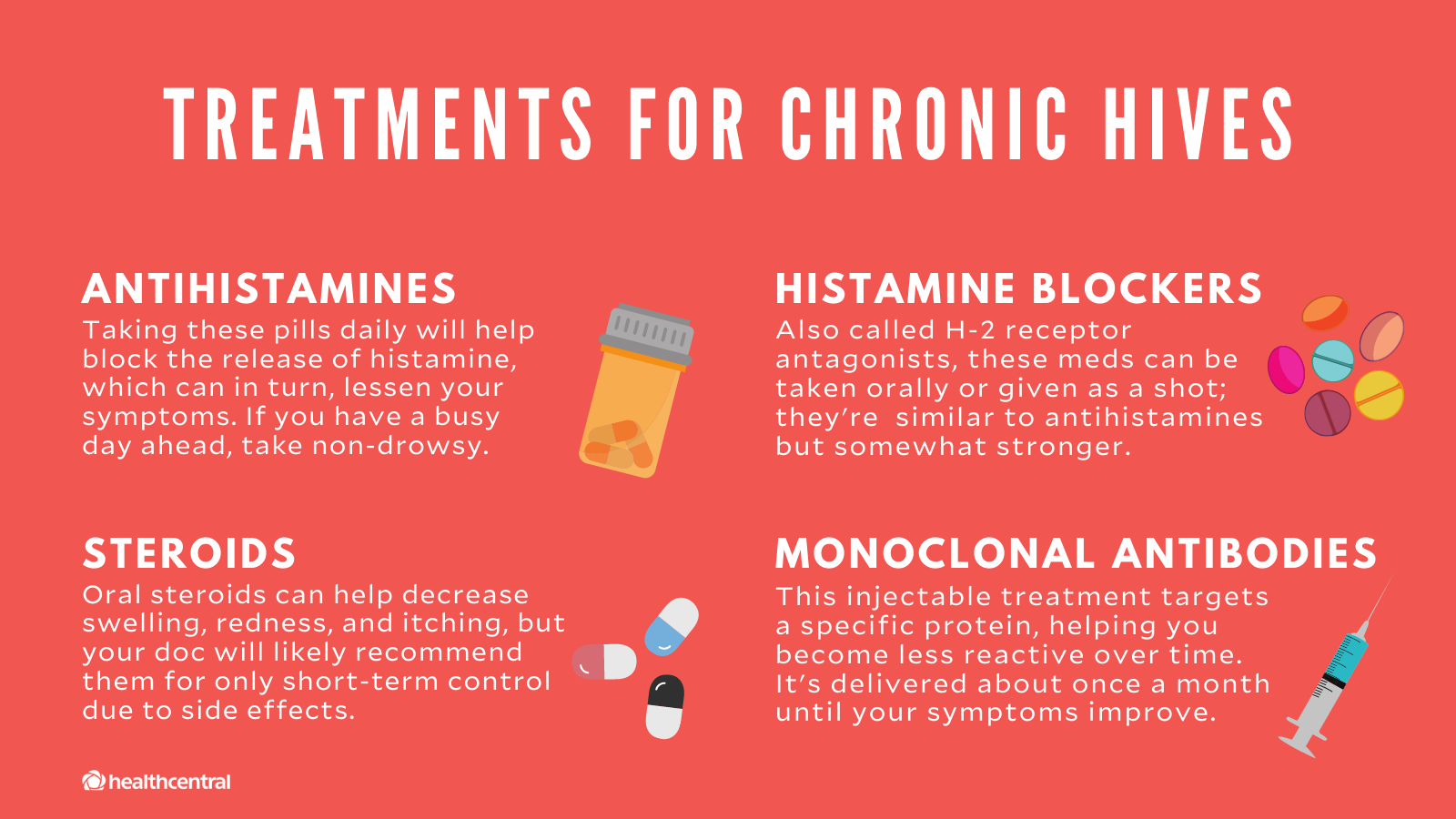
Allergic Reaction Hives Medicine. Allergic reactions chemicals in foods insect stings sunlight and medicines can make your body release a chemical called histamine. The allergic reaction releases histamine from skin blood cells and formed hives over the skin. Newer antihistamines also called second-generation antihistamines such as. Drugs that can cause hives include aspirin and other nonsteroidal anti-inflammatory medications such as ibuprofen high blood pressure drugs especially ACE inhibitors or painkillers such as.
This can be localised to one area or generalised and may include. Benadryl diphenhydramine Claritin loratadine and Zyrtec cetirizine are over-the-counter oral medications that can help reduce the uncomfortable itchiness and redness from hives. Experts refer to severe allergic reactions as anaphylaxis. 76 rows Other names. If hives does not go away with treatment you may be referred to a skin specialist dermatologist. Allergic reactions chemicals in foods insect stings sunlight and medicines can make your body release a chemical called histamine.
In a drug reaction a medication triggers the release of histamine.
Avoiding the allergen trigger is the only way to prevent a reaction. If hives does not go away with treatment you may be referred to a skin specialist dermatologist. An immediate allergic reaction happens within 4 hours after getting vaccinated and could include symptoms such as hives swelling and wheezing respiratory distress. Experts refer to severe allergic reactions as anaphylaxis. This can be localised to one area or generalised and may include. Treatment for hives from a GP A GP may prescribe menthol cream stronger antihistamines or steroid tablets.
